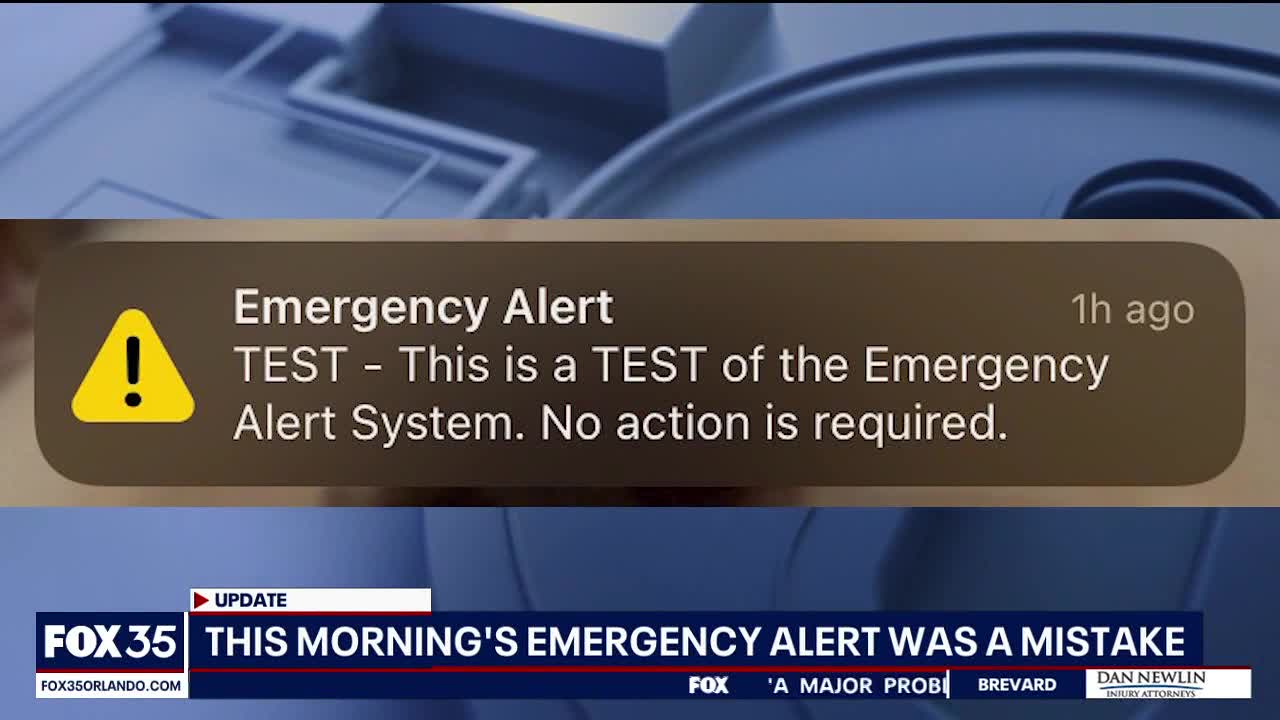Florida officials apologize for 4:45 am emergency alert test that woke up angry residents
Many newly wide-awake people were wondering on Twitter why test the system at 4:45 a.m.

DAYTONA BEACH, Fla. – Cell phones blared to life at 4:45 a.m. ET Thursday with an emergency alert, rousing many Floridians from sleep.
But there was no actual emergency. The message stated the system was just being checked out.
“This is a TEST of the Emergency Alert System. No action is required.”
It was even scarier for Android users who first saw "Emergency alert: Extreme" when they picked up their phones (followed by the same test acknowledgment in non-bold text.)
Well, many people in the Twitter-verse thought some action might be required: like the firing of whoever decided to test the emergency alert system at 4:45 a.m.
Why was the alert sent?
Some said it was rude. And some used much stronger language. Many were wondering why run a test at 4:45 a.m.? What Florida man would do such a thing and why?
About four hours after the alert went out, state officials acknowledged the alert was a mistake.
"We know a 4:45 AM wake up call isn't ideal 😅," the Florida Division of Emergency Management tweeted. "@FLSERT wants to apologize for the early morning text. Each month, we test #emergencyalerts on a variety of platforms. This alert was supposed to be on TV, and not disturb anyone already sleeping."
The division said it is taking the "appropriate action to ensure this will never happen again and that only true emergencies are sent as alerts in the middle of the night."
Before officials admitted to the mistake, there was widespread confusion about why the alert was sent. That led some TV stations to conclude the test was legit and tied to the Florida Association of Broadcasters schedule, which had a test scheduled for 4:50 a.m. April 20.
Social media users react
Besides a lot of grousing, the alert produced lots of memes on Twitter, some showed alarmed people being awoken from their slumber while others depicted angry people.
Weather forecast: 40 million people under severe weather threat as thunderstorms, tornadoes possible in central US
Lost pet scams: How sharing Facebook post about lost pet could put you, friends at risk of scam